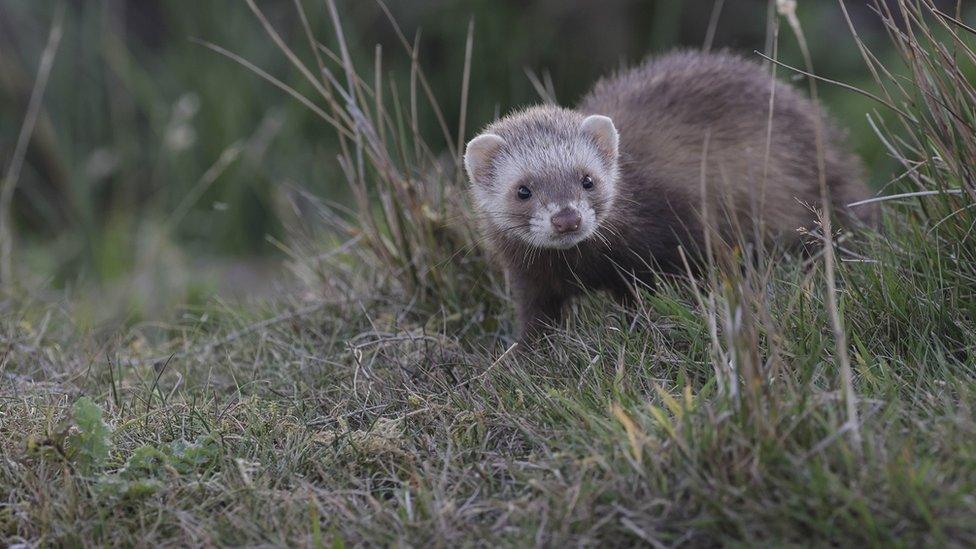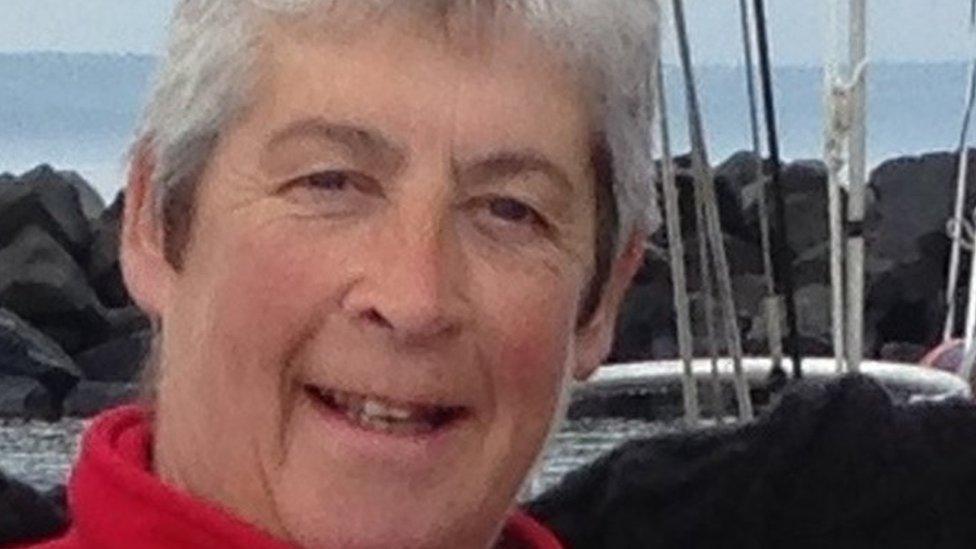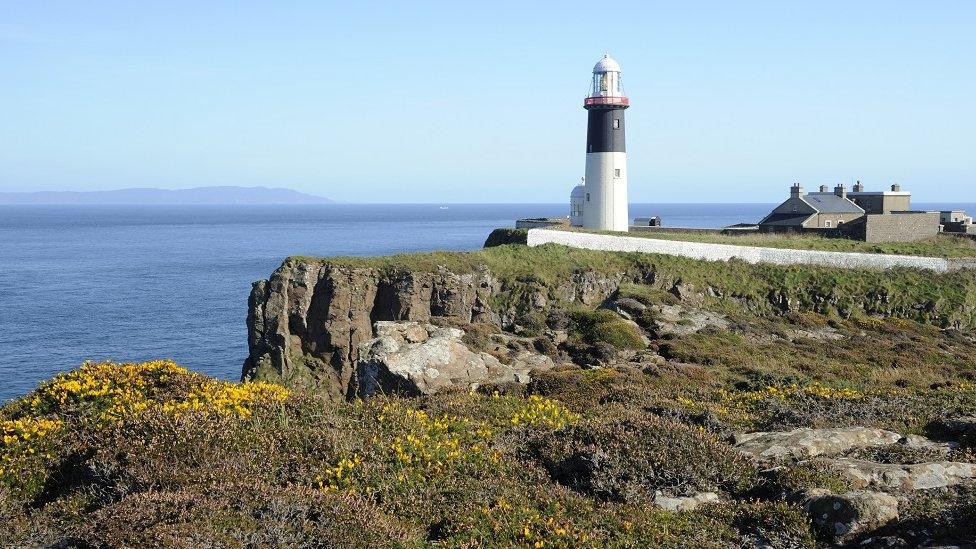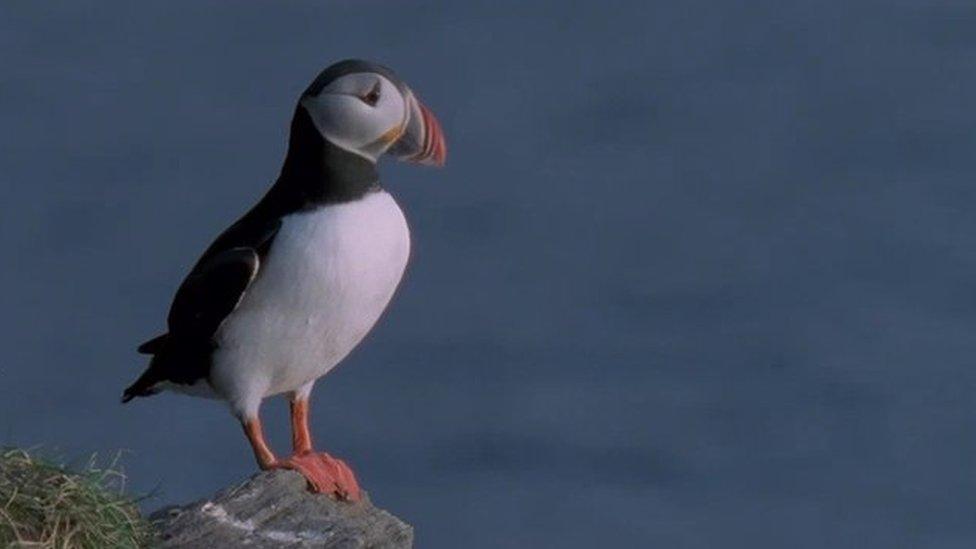Rathlin Island: RSPB searches for a ferret-catcher
- Published

Ferrets are believed to have been introduced to Rathlin Island in the 1980s
If the chance to work in one of Northern Ireland's most beautiful landscapes appeals to you, you may be in luck.
The Royal Society for the Protection of Birds (RSPB) is currently looking for someone to do just that.
What's the role? Co-ordinating the eradication of Rathlin Island's ferret and rat populations.
Seabirds and other wildlife on the island off the Antrim coast are on the decline because of non-native ferrets.
As part of a five-year project the RSPB now needs a ferret trapping co-ordinator.
Marina McMullan, who lives on the island and is a member of Rathlin Development Community Association, said ferrets had been a problem for more than 40 years as they decimate the local wildlife.
She said the job opportunity would bring employment to the community, adding "every penny counts for locals".
"I am born and bred on the island and we have needed this for a long time. I am delighted to see work happening to protect our local wildlife," she said.

Marina McMullan said the role would be a positive one for the island community
Rathlin Island is only six miles wide and one mile long, with a population of about 150 people.
The job is part of the seabird restoration project, Rathlin Acting for Tomorrow, one of the largest of its kind, with a total budget of £4.5m.
The ferrets are said to have been brought to the island in the 1980s as a way to combat the rabbit population.
Tom McDonnell, a photographer who lives on Rathlin, said he was happy to see something being done.
"Ferrets have attacked many ground-nesting birds like lapwings and snipes and I've noticed less hares and leverets," he told BBC News NI.
He said the job would be a tough one.
'They're hard to spot'
"No-one knows how many ferrets are on the island. I only ever see them at night - they are hard to spot," he said.
"I'm a nature lover, of all animals, but the risks of having non-native ferrets here can't be argued against. Local animals need to come first."

The East Lighthouse on Rathlin Island, which is trying to address its ferret problem
The RSPB said the successful candidate would be a passionate advocate for Rathlin Island with a commitment to affording a small community the opportunity to contribute to species recovery.
Office work will be a substantial part of the job but the role will also involve working on the ground on the island as part of the eradication team.
"This will involve the humane dispatch of animals," the job description states.
The project's leader Dr David Tosh said humane dispatch meant that unfortunately the ferrets would be killed.
"How exactly it will be done will be informed by our independent ethics committee," he added.
"We couldn't consider rehoming the ferrets as they are now feral...Moving them to another location isn't an option either as that would just shift the problem elsewhere."
'Rubbish weather'
The RSPB said 25 species of birds are at risk partly due to the invasive predators.
Puffin numbers on Rathlin have declined by more than half in recent years.
"The biggest problem has been they [ferrets] are eating the [bird] eggs," Dr Tosh told the Mark Patterson Show on BBC Radio Foyle.
He said that the RSPB wanted someone who could adapt to living on an island and working "in rubbish weather".
"Rathlin, because it never had any predators, they had lots of birds that like to nest on the ground, so once the ferrets were introduced, over time those birds have started to disappear.
"They have been really impacted by the ferrets… we are trying to get rid of them."
Related topics
- Published10 September 2021
